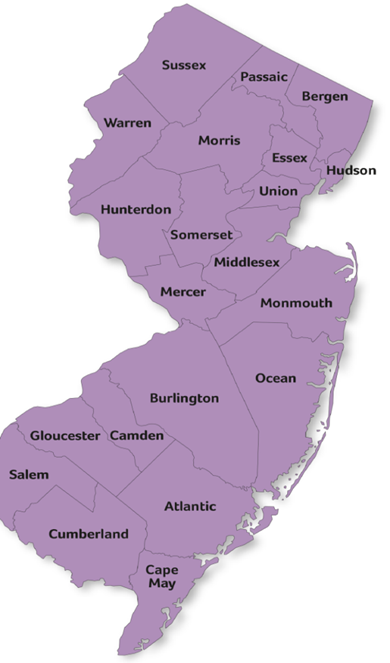TRENTON – With all COVID-19 capacity restrictions on businesses and gathering limits having been lifted due to the continued improvement of New Jersey’s public health metrics, Governor Phil Murphy has signed legislation (A5820/S3866) enabling the end of the COVID-19 Public Health Emergency that has been in place since March 9, 2020.
Immediately following the signing of the legislation, Governor Murphy signed Executive Order No. 244, ending the COVID-19 Public Health Emergency. Under the legislation, the majority of executive orders issued pursuant to the Public Health Emergency will expire 30 days from June 4.
The legislation, which was negotiated with legislative leadership and sponsored by Senate President Steve Sweeney and Assembly Speaker Craig Coughlin, allows for the termination of the Public Health Emergency while also allowing the Administration to retain the tools necessary to manage the ongoing threat posed by the pandemic.
Specifically, the Administration is authorized to issue orders, directives, and waivers under the authority in the Emergency Health Powers Act that are related to vaccination efforts; testing; health resource and personnel allocation; data collection, retention, sharing, and access; coordination of local health departments; and implementation of any CDC recommendations to prevent the transmission of COVID-19. This authority lasts until January 11, 2022, and can be extended for 90 days with the passage of a concurrent resolution by the Legislature.
“Today’s lifting of the COVID-19 Public Health Emergency is a clear and decisive step on the path toward normalcy,” said Governor Murphy. “The past 15 months have been a challenge, and I thank every New Jerseyan who stayed home, masked up, took precautions to keep this virus in check, and got vaccinated for allowing us to get to this point. I also thank the Senate President and the Speaker for working with us to responsibly end the Public Health Emergency and meet the challenges ahead.”
The legislation keeps the following 14 executive orders in place until January 1, 2022, though they can be modified or rescinded prior to that date by the Governor (See https://www.state.nj.us/governor/news/news/562021/approved/20210604b.shtml for details on each):
· Executive Order No. 106
· Executive Order No. 111
· Executive Order No. 112
· Executive Order No. 123
· Executive Order No. 127
· Executive Order No. 150
· Executive Order No. 159
· Executive Order No. 170
· Executive Order No. 178
· Executive Order No. 207
· Executive Order No. 229
· Executive Order No. 233
· Executive Order No. 237
· Executive Order No. 242
Further, any administrative orders, directives, or waivers that relied on the existence of the public health emergency, including Department of Health orders that govern vaccinations and testing, are extended until January 11, 2022. The Governor is authorized to seek a further 90-day extension of such orders, directives, or waivers, which can be granted by a concurrent resolution passed by the Legislature.
The legislation also states that while the State of Emergency declared in Executive Order No. 103 shall remain in effect, the previous seven-day requirement for Open Public Records Act (OPRA) responses will be restored for records unrelated to the COVID-19 response. Additionally, civil and criminal immunity given to health care professionals and facilities, including long-term care facilities, and existing waivers of regulations involving staffing ratios, overtime, shifts, and vacation time will expire on September 1, 2021. Civil immunity for health care professionals shall continue beyond September 1, 2021 only for individuals specifically engaged in vaccinations or testing related to COVID-19.


